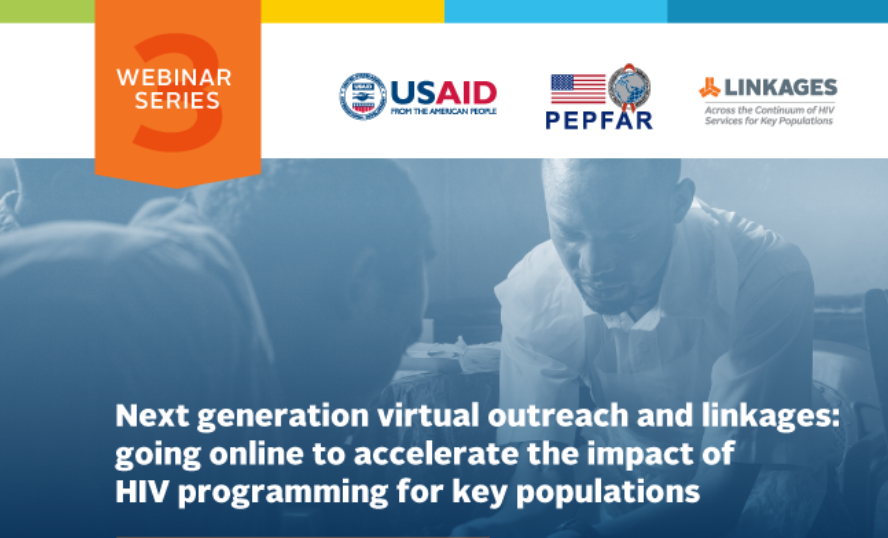Event Date
Webinar hosted by the LINKAGES project as part of the Key Populations: Evidence in action series.
To access the audio recording of the webinar, please click here.

On January 25th, the USAID– and PEPFAR-supported LINKAGES project hosted the third webinar in a webinar series entitled Key Populations: Evidence in Action. This webinar included presentations on virtual communication, social media outreach, internet recruitment, and the development of online advertisements for key populations.
Michael Cassell, FHI 360/LINKAGES/Thailand
Moderator
Benjamin Eveslage, FHI 360/LINKAGES/Southeast Asia
A vision for going online to accelerate the impact of HIV programming for key populations
Marie Belot, FHI 360/LINKAGES SBCC & Peer Outreach Offline/Online Consultant
How to effectively communicate virtually with key populations for behavior change: lessons learned from Central America
Matthew Vaughan, ACON/Australia
Developing interest-based online targeted advertisements for gay men and other MSM
Apirak Apijitchaichot (Pinn), NET HERO & Bangkok Rainbow/Thailand
From (inter)net idol to net hero: the road to becoming a recruiter hero
Kimberly Green, USAID/PATH Healthy Markets Project/Vietnam
From the virtual to the physical: connecting social media outreach to the HIV cascade in Vietnam
This webinar series is intended to be a platform for (1) sharing state-of-the-art knowledge, emerging evidence, and promising practices for achieving greater impact on the HIV epidemic through programs for key populations; (2) addressing pressing questions and controversial issues from the perspective of key population experts and community members; and (3) fostering dialogue among a broad set of partners working in key-population-focused research, programming, and advocacy.
The webinars will cover a range of topics, including introduction and scale-up of HIV self-testing and pre-exposure prophylaxis for key populations; cascade monitoring and data use; information and communication technology-based interventions; effective strategies for addressing violence, stigma, and discrimination; differentiated models for delivering antiretroviral therapy; and community empowerment.
This webinar series is open to anyone interested in key populations, including program implementers, researchers, policy-makers, advocates, funders, and community members.
